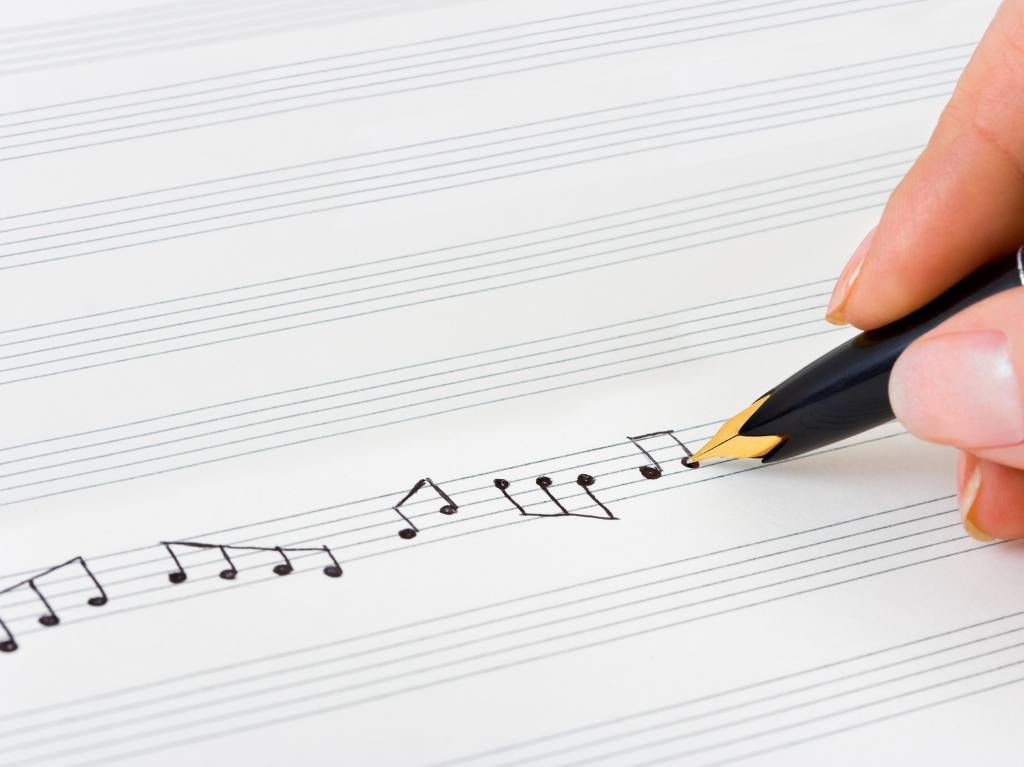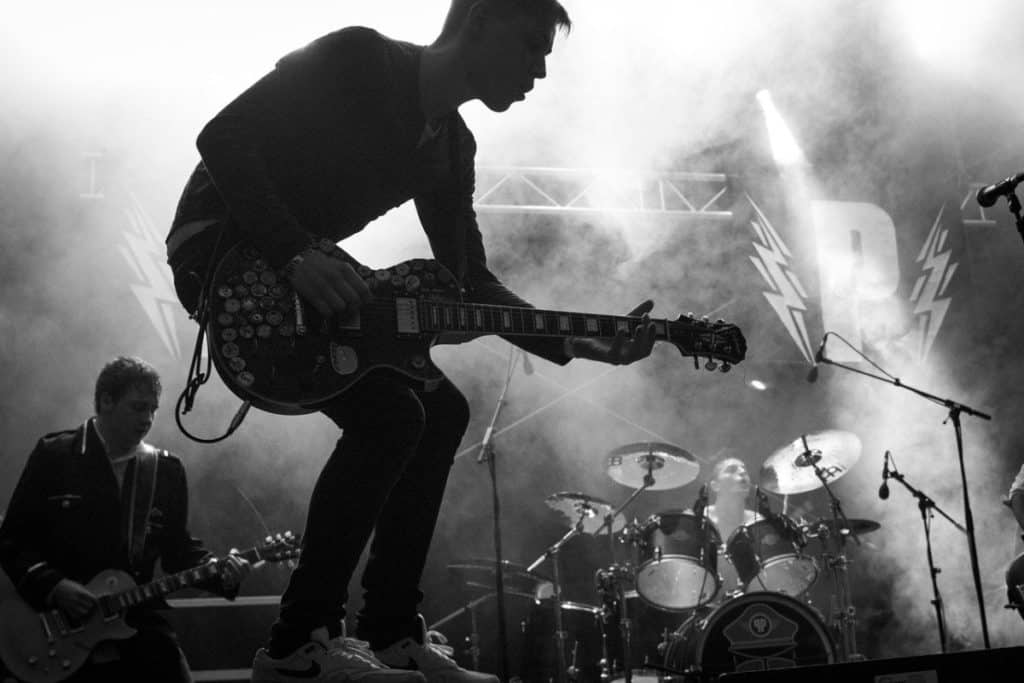How Do Artists Remember Their Lyrics: Making and performing music is a complicated process that needs both technical know-how and a real link to the lyrics. For musicians, knowing their lines is an important part of putting on a show that is both interesting and real. It’s a delicate waltz between memory, imagination, and passion to be able to remember lyrics in a world where feeling and expression mix.
This problem is about the unique brain geography of an artist’s mind. Lyric memory is a complicated mix of memory for hearing, seeing, and touching. Usually, musicians use the rhythm and melody of their songs to help them remember the words, creating a musical structure that the lines can rest on.
Auditory memory, which is very good at picking up on small changes in pitch and tone, is very important for artists when they are internalizing the sound tapestry of their music.
Artists also use visual memory to connect words to mental pictures or events, making a visual map through the story of their music. Associating words with certain movements or gestures during practice is one way that some artists improve their kinesthetic memory. Combining these different types of senses makes remembering words a more interesting and whole process.
Not only do songs help us remember things intellectually, but they also help us remember things emotionally. When artists write songs, they often use their feelings and experiences as inspiration, which helps them connect deeply with the words they sing. Not only does this emotional resonance improve the performance, but it also helps the artist remember the words by imprinting them on their mind through the power of desire.

How do musicians memorize so many songs?
How can their brains hold on to this much information? Musicians can memorize many songs for a performance through massive repetition and by having a deep understanding of how the chords, melodies, and lyrics all work together in unison. This is especially true if the musician was involved in the songwriting process.
Musicians can memorize a large number of songs. They do this through a mix of mental processes, practice, and a strong connection to the music.
This skill depends on how well your hearing and muscle memories work together. When musicians practice a lot, their brains make strong neural links with certain musical sequences, making it easy for them to remember complicated arrangements.
Also, artists often use visual memory during practice by reading sheet music or chord charts, which gives them a picture of how the music is put together. As if that wasn’t enough, playing an instrument or singing in real life strengthens the connection between movement and sound even more.
The way music makes you feel is also important. Musicians often choose songs that remind them of personal experiences or make them feel strong emotions. This creates a deep link that helps them remember things. This emotional connection not only helps people remember but also makes their actions more sincere and passionate.
How do artists employ memory techniques to recall their lyrics flawlessly?
Artists use a variety of memory tricks to remember their lines perfectly, which lets them give a performance that is both smooth and real. Long rehearsals are a basic method that helps people remember the words by repeating them over and over. This builds a strong memory not only of sound but also of muscle memory as the singer fully engages with the act of singing.
Visualization is a strong tool that artists use to connect words to pictures or stories in their minds. This visual reminder helps you remember things by giving the words a meaning. Some musicians use kinesthetic memory by linking certain movements or gestures to certain songs. This adds a physical element that helps with remembering.
It’s important to connect emotionally. Artists often pick songs that have a deep meaning for them because the words remind them of things that happened to them. Not only does this emotional link make the performance more real, but it also helps people remember the words by burning them into their minds with passion.
Lyric apps and audio devices, for instance, offer up-to-date help. These techniques can help artists remember things better during practice. As well as technology, artists use a multimodal method that includes hearing, seeing, touching, and feeling to understand and express their words with precision and passion.
How do singers know notes?
Pitch memorization is the first approach many singers take to try and improve their pitch. Often, they do this without knowing they are doing it. They might try listening to a song over and over again until they have memorized the pitches, or pick out individual notes on an instrument and then sing the notes.
Singers get through the difficult world of musical notes with a mix of natural talent, hard work, and a solid grasp of musical theory.
To sing well, you need to have a good sense of pitch, which means being able to tell the difference between and copy specific sound frequencies. While everyone has a different natural sense of pitch, it is this sense that helps singers hit the right notes.
Formal lessons are important for helping a singer learn how to read notes. Vocal coaches and music teachers help singers by giving them tasks that make it easier to tell the difference between pitches and sing them correctly. A lot of singers use scales, arpeggios, and ear training exercises to get better at hearing changes in pitch.
Musical notation is a set of written symbols that shows artists where the notes are in a piece. By learning to read sheet music, vocalists can understand the pitch, length, and rhythm of each note, setting the stage for correct vocal interpretation.
In addition, singers usually get a tactile feeling of pitch through muscle memory. Repeating certain notes makes the physical feelings connected to hitting them stick, which lets a singer regularly hit those notes.
Do artists get tired of singing their songs?
As a singer or musician in a band, you can grow tired of playing your “old material” and performing can sometimes feel repetitive and monotonous! However, there are strategies you can use to keep your performances fresh and engaging, no matter how many times you’ve sung the same song.
Yes, artists may get tired of playing the same songs over and over, especially if they go on long tours or advertising campaigns. Even though artists may have a deep emotional connection to the music they make, performing a lot of shows and playing the same songs over and over again can be mentally and physically draining.
The voice chords are physically sensitive and can get pulled out after a while of use. Different vocal exercises and warm-ups are common ways for singers to ease stress, but the need to perform nonstop can still be hard.
Also, the emotional weight of constantly feeling the things that the songs describe may make you mentally tired. Artists may need help to keep the honesty and passion in their shows when they have to keep the music current and important.
Some artists deal with this by rewriting their songs live, mixing up the order, or making changes to keep things interesting. Others take breaks between trips to stay creative and avoid getting tired. Although it can be hard, artists usually care about how their music affects people and want to give memorable shows, even if it means getting past the tiredness that comes with singing their favorite songs.

What strategies do artists use to reinforce and remember their lyrics through repetition?
Artists use repetition purposefully to help people remember and reinforce their songs. For starters, artists need to practice regularly because that’s when they really get into the songs. This not only tests your verbal memory but also improves your muscle memory, which makes it easier to remember things when you’re performing.
Visualization works well, and artists use it to create mental images that go with certain words. This visual element gives the words more meaning, which helps you remember them. Some artists go even further by using kinesthetic memory, which links movements or actions of the body to parts of the song. This direct contact strengthens the memory process.
It’s important to connect emotionally. A lot of the time, artists pick songs that are about personal situations. This makes the words and the artist’s thoughts very close. The artist gets more involved with the material, which speeds up the process of remembering it. This leads to a more honest and passionate performance.
Artists can also use technology to help them remember lyrics better by using audio devices or lyric apps during practice. This mix of auditory, visual, kinesthetic, and emotional elements, along with technological support, creates a strong framework that not only helps artists remember their songs by playing them over and over but also performs them with accuracy and emotional resonance on stage.
Does music make it harder to memorize?
It could help you memorize new information
These findings suggest certain types of music can help boost memorization abilities and other cognitive functions. Music helps stimulate your brain, similar to the way exercise helps stimulate your body.
Different types of music have different effects on memory, depending on the person and the task. For some people, music can help them remember things and concentrate better. Certain types of music, especially those with slow beats and few words, may create a background noise that helps you focus and remember things while you’re learning or reading.
However, the words to songs may interfere with more complicated mental processes, especially those that involve language processing or verbal memory. One example of an “irrelevant sound effect” is how background noise, especially music with words, can make it harder to remember what one has heard.
In addition, differences between people have a big effect. Some people think that music makes them smarter, while others may find it hard to focus when they hear musical things. It’s important to make sure that the music you choose fits your job and your hobbies if you want to know if it will help you remember things or distract you.
Ever wonder how singers remember lyrics?
Not only do singers need to be able to sing beautifully, but they also need to be able to remember the words to the songs they sing. To do this, they use mental sharpness, practice, and a deep link to the lyrics. Singers often use auditory memory to remember their songs. They do this by practicing their melodies over and over again. The way pitch, tone, and rhythm work together creates a pattern in the sound that helps you remember word order.
Vocalists use visual memory to picture the words and connect them to mental pictures or story clues. Vocalists often use a detailed mental storyboard to help them understand how the lyrics fit together. Muscle memory is also activated when you sing, making the link between certain words and vocal movements stronger.
Emotional connection is a very useful tool for remembering things. Vocalists often pick music that makes them feel something or reminds them of something from their own lives. This creates a strong connection that helps them remember. In addition to improving performance, emotional depth helps the singer remember the words by making them more personal.
These days, technology can help singers. Voice memos, recorders, and lyric apps are all good ways to practice and strengthen what you’ve learned. A skilled mix of auditory stimulation, emotional resonance, and hard training helps people remember lyrics, which makes adding words to a singer’s vocal repertoire a natural progression.
How do singers remember lyrics? The best Methods
Singers use a variety of techniques to ensure they deliver their lines smoothly and confidently. This practice helps them become experts at remembering the words. A key technique singers often use is repetition. Because they train for a long time, the words stick in their minds because they know them so well. Many people remember things by hearing them. The song and beat become ingrained in their minds and help them remember.
Another useful method is visualization, which singers often use to connect the words to a mental storyboard by picturing the lyrics as a story or a series of images.
This visual memory feedback helps people remember things better, and it gets easier to remember the words when they are set to music. When you sing and really feel the words, you create kinesthetic memory, which helps you remember them correctly during shows. This makes the link stronger.
Emotional link is important because singers often choose songs that are about things that are important to them. Because of this emotional link, their acts are more real, and the lyrics help them remember things very well because they are linked to strong emotions.
Tech tools like song sheets, prompters, or digital devices could be helpful during practice sessions or live shows. Singers are able to remember and perform their songs with passion and accuracy thanks to a system that combines auditory, visual, and kinesthetic memory with emotional connection and the smart use of technology.
The question of how artists remember their lyrics reveals a complex web of mental processes, emotional connections, and coping methods in the confusing world of making and performing music. Lyric memory isn’t just a matter of learning words by heart; it’s a living process in which the mind and music interact as we navigate the tricky paths of memory and art.
The way lyrics get into an artist’s mind is based on their auditory memory, which can pick up on even the smallest details of melody and rhythm. Each note’s reverberation makes a recognizable rhythm that serves as an easy-to-understand map of the lyrical space.
When you combine your visual memory with the verses, you get mental pictures that get mixed up with the words and create a vivid story that the artist has to follow while performing. Kinesthetic memory adds a tactile element to remembering when an artist uses movement to represent the lyrics. This makes remembering like dancing to the music.

On the other hand, the emotional connection makes this process more than just remembering. When artists write lyrics full of personal stories, feelings, and experiences, they can’t separate their words from their souls. This emotional link gives each performance more depth and authenticity, and it also helps people remember things very well.
Digital tools are new friends for artists in the always-changing world of technology. Voice memos and lyric apps, for example, give artists a modern way to remember things by allowing them to practice and offering quick access to poetic information.







Leave a comment